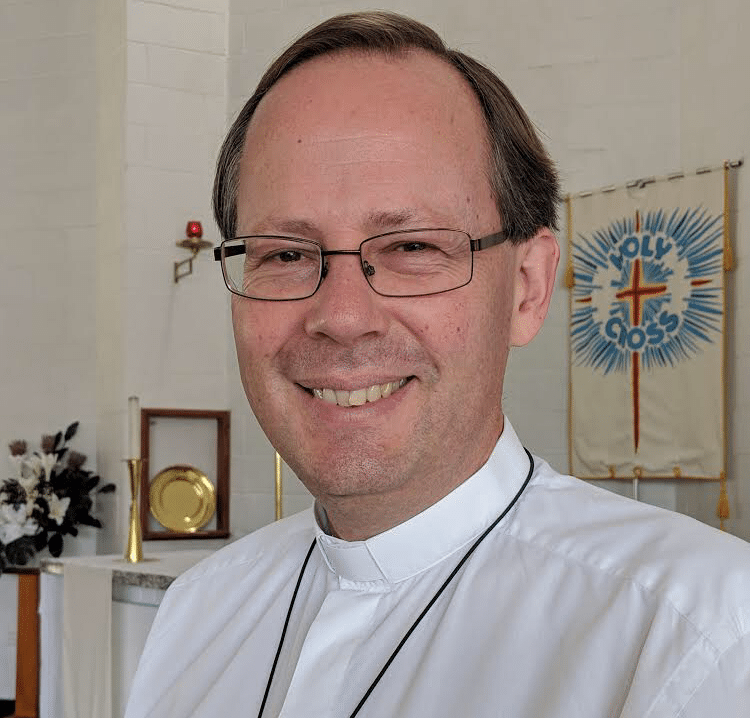
By Stephen Cauchi
13 December 2021
AUSTRALIAN Christians will consider how God might be calling them to live in religious community at an upcoming conference.
Advocates say religious communities have long been part of the Australian DNA, and the disruption of the COVID-19 crisis was the right time to examine their future.
Traditional, modern and emerging religious communities will gather in March to discuss the history and future of the movement in Australia, at Ancient Futures: The Renewal of Religious Life in the Australian Church.
Read more: Sisters remain open to God’s call in time of uncertainty
Traditional Anglican and Catholic communities will be represented, along with new, ecumenical and indigenous movements.
Conference speaker Reverend Dr Tim Watson said Australia had a long history of involvement with religious communities, which for instance founded a lot of Anglican schools during the 19th century.
He said many of the early Australian Catholic bishops, for instance, were Benedictines, because establishing a presence in the fresh mission field of Australia required something like a monastic life at heart.
Dr Watson said early Anglican communities include the Bush Brotherhood, the Community of the Ascension and the Community of the Holy Name.
“These kinds of communities have been really significant and part of the Aussie DNA,” he said.
“If you look at their legacy now, through things like Anglicare and schools, a lot of those were actually founded and run by orders.”
An Anglican priest originally from England, Dr Watson has been a member of European religious communities for most of his adult life, such as the Lee Abbey religious community, the Order of the Mustard Seed, and Catholic ecumenical community Chemin Neuf.
He said such communities were a great complement to church parishes, nourishing the general spirituality of the church.
Dr Watson said the church had always included spiritual elements that lent themselves well to separate spiritual community, adding interest and colour, but also satisfying people’s religious desires.
He said the Franciscan order founded by St Francis of Assisi in 1209 was an example of this.
“You wouldn’t want a whole church to be Franciscan, but what’s really helpful is to have associates of people who really resonate, come alive with that particular spirituality,” he said.
Dr Watson noted that the Roman Catholic church had a third of its clergy working in religious orders while the other two-thirds worked in parishes. He said this was a helpful balance to aspire to.
He said there were strong Protestant or ecumenical religious communities worldwide, such as the Iona Community in Scotland, the Taize Community in France, and the international Youth With A Mission movement. In Australia he named the Liminis community in Goulburn, NSW.
“If you look at the kinds of energy and interest there is in that whole space then people are turning to those spiritual disciplines and practices. They’re looking for something newer and deeper and richer,” he said.
Australia Centre for Christianity and Culture executive director the Right Reverend Professor Stephen Pickard, said COVID-19 was a great time to examine religious communities, as it was causing disruption to the church.
He said that at the times of greatest need, humans were able to rediscover new ways of living faithfully.
Professor Pickard said that while “religion and the spiritual quest” were both growing, the habit of joining an organisation such as a religious community was on the decline, meaning something new was called for.
“Historically it is new religious movements and the emergence of new communities of faith that have provided the spiritual sustenance for people and societies undergoing times of change and uncertainty,” he said.
Professor Pickard said the conference would aim to learn from the past, by examining what worked and what didn’t. He said it would also take stock of the present situation, and orient attendees towards the movement of the Spirit of God.
“We will consider how God may be calling 21st century Australians to various forms of religious and community life, and what ecclesial conditions – for example, vision-casting, theology, resourcing, oversight, ecumenical collaboration – are now required to enable what the Holy Spirit is doing,” he said.
The Archbishop of Canterbury Justin Welby addressed a one-day November seminar in preparation for the conference, urging attendees to “look for where God is calling the communities of Australia to join Him.”
“The religious life is not about running away, it is running into the depths of the battle of oneself, with the world, with the reality of God in a community life,” said Archbishop Welby.
The conference is hosted by the Charles Sturt University’s Australian Centre for Christianity and Culture in Canberra from Thursday 3 March to Saturday 5 March 2022.
Ancient Futures: The Renewal of Religious Life in the Australian Church is at: about.csu.edu.au/community/accc/ancient-futures







